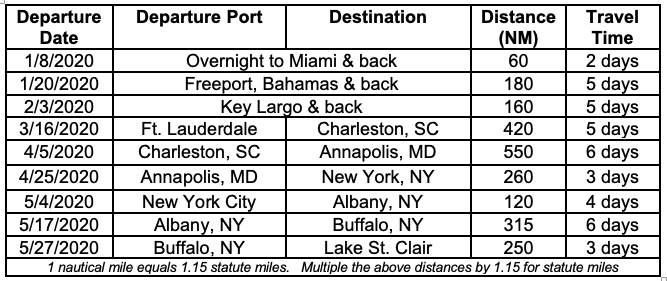If you thought it’s been a bumpy ride the past couple of months when it was President-elect Trump, just wait for the next few months as we are witnessing President Trump begin to implement policy. I could not figure out why people were jumping up and down over what they perceived as evidence that Trump was reneging on promises before he even took office. His “perceived” changes in positions bothered me not in the least. Then it dawned on me that not everyone is a negotiator, has the desire to negotiate, or even understands the process. My career has revolved around negotiating contracts, subcontracts, and twenty years of negotiating multi-employer labor agreements with unions. I know that of which I speak.
I think it is understood that President Trump is a negotiator. But what does that mean? And how does that translate into what we are witnessing as he begins to advocate for new policies and changes to existing policies? Perhaps it is easiest to contrast his style with his predecessor, former President Obama, simply because Obama’s policy changes and negotiating style is fresh in everyone’s mind.
If you look at what actually occurred, rather than how it was often spun in the popular press, former President Obama was a rank novice when it came to international  negotiations. Was he popular and well-liked on the international stage? Without question. But he, and his Secretaries of State, were easy marks and those sitting on the opposite side of the table knew it. Some of his opening statements and ongoing statements during negotiations made me wince in pain. The Russian red “Reset” button is one of the earliest examples. Following Russia’s invasion of Georgia in 2008, Secretary Clinton met with the Soviet Foreign Minister in 2009 and requested a reset of their relations. That is an incredibly weak position for an initial meeting with the Russians, given what they had done only seven months earlier. It is really no position at all because no one knew what the “reset” was supposed to be.
negotiations. Was he popular and well-liked on the international stage? Without question. But he, and his Secretaries of State, were easy marks and those sitting on the opposite side of the table knew it. Some of his opening statements and ongoing statements during negotiations made me wince in pain. The Russian red “Reset” button is one of the earliest examples. Following Russia’s invasion of Georgia in 2008, Secretary Clinton met with the Soviet Foreign Minister in 2009 and requested a reset of their relations. That is an incredibly weak position for an initial meeting with the Russians, given what they had done only seven months earlier. It is really no position at all because no one knew what the “reset” was supposed to be.
Then in August 2012, President Obama issued his now infamous warning to Syria not to cross a red line with regard to use of chemical weapons. Issuing an ultimatum is only effective if you follow through. The fact that the administration backed away from the ultimatum when Syria did use chemical weapons was not lost on the Russians, nor every other country in the world. This, among other facts, told Russia that they could invade Crimea in 2014 with minimal risk of a military response from the U.S. Our response was international economic sanctions on Russia which, while effective, are a cheap price for Russia to pay for Crimea and in fact emboldened them to continue with an ongoing war in the Ukraine. The cogent point to all of this is the President Obama and his administration continually committed negotiating gaffs by stating their goals at the outset or issuing ultimatums that they were unwilling to enforce.
Which brings me to President Donald Trump. It is impossible to negotiate significant changes to an already existing agreement unless the opposing party is worried and uncomfortable. You will note that he has only stated that he wants to renegotiate NAFTA
and perhaps the TPP (he basically cancelled it already). He does not state what he thinks  it should be. With the exception of the wall on our southern border (Mexico will pay for it…) he never states an end goal. What impresses me is that President Trump has every world leader on edge, including some of our strongest allies such as Great Britain, Canada, Mexico, and Japan. This is a necessary precedent to meaningful negotiations. Each party must believe there are vital negotiating elements to be lost and gained and that everything is on the table. They cannot begin thinking that they already have much of what they desire already “in the bag”. For example, the previous administration began negotiations on troop withdrawals from both Iraq and Afghanistan by publicly announcing when all troops would be out of each country. President Obama announced aggressive troop drawdowns that were politically popular with his constituency as well as welcome news to the governments of Iraq and Afghanistan. This is where we should all collectively wince in pain. Why? Because there was nothing gained in return. The troop drawdowns were unilateral commitments.
it should be. With the exception of the wall on our southern border (Mexico will pay for it…) he never states an end goal. What impresses me is that President Trump has every world leader on edge, including some of our strongest allies such as Great Britain, Canada, Mexico, and Japan. This is a necessary precedent to meaningful negotiations. Each party must believe there are vital negotiating elements to be lost and gained and that everything is on the table. They cannot begin thinking that they already have much of what they desire already “in the bag”. For example, the previous administration began negotiations on troop withdrawals from both Iraq and Afghanistan by publicly announcing when all troops would be out of each country. President Obama announced aggressive troop drawdowns that were politically popular with his constituency as well as welcome news to the governments of Iraq and Afghanistan. This is where we should all collectively wince in pain. Why? Because there was nothing gained in return. The troop drawdowns were unilateral commitments.
So, what should we anticipate going forward? First, expect much wailing and gnashing of teeth, even anger, from whoever sits on the other side of the table. Anger is, more often than not, a negotiating tactic rather than being real. As is incredulity, disbelief, and surprise. (You cannot be serious!) If one genuinely becomes angry during negotiations, you lose. It clouds both judgement and objectivity. I cannot yet decide if Sr. Vincente Fox is  truly going ballistic over President Trump’s claims that Mexico will pay for the wall or if he is simply setting Mexico’s starting position for the upcoming negotiations. If he is genuinely foaming at the mouth, I would want him sitting across the table, even if he is no longer holding political office.
truly going ballistic over President Trump’s claims that Mexico will pay for the wall or if he is simply setting Mexico’s starting position for the upcoming negotiations. If he is genuinely foaming at the mouth, I would want him sitting across the table, even if he is no longer holding political office.
Second, we can expect popular press to regurgitate the wailing and gnashing of teeth, except that they will amplify it to near deafening proportions. They will worriedly wring their hands and castigate President Trump’s administration for (take your pick) alienating a long term ally, poking the Russian bear, irreparably harming future relations, setting back relations twenty years, or whatever. Critical thinking, although not absent in the popular press, is severely lacking. As our country moves forward with these many negotiations, just remember… all good negotiations end in harmony, a handshake, and smiles on both sides. It is an agreement, and both parties wish to present it to their constituencies as a successful accord portending good relations going forward. It will be no different here. I, for one, am looking forward to watching this process unfold.













 atrial fibrillation in my heart. That alone was like a V-8 engine running on all 8 cylinders again instead of limping along on seven. And my hair is returning! Although it looks like I collected lint from our dryer lint trap and glued it in place. I even have static cling…
atrial fibrillation in my heart. That alone was like a V-8 engine running on all 8 cylinders again instead of limping along on seven. And my hair is returning! Although it looks like I collected lint from our dryer lint trap and glued it in place. I even have static cling… The Chaplain blessed them for me. I figured since I was baptized at birth I didn’t want the new stem cells to feel left out. And Feb. 7 is my new birthday! Then it was simply a matter of hanging an IV bag for about 45 minutes. Altogether there were six people in the room plus Jill and me. Of the six, five of them grew up within ten miles of our home in Novi, Livonia, Farmington, or Farmington Hills. Certainly an interesting coincidence, but it likely stems from that mass exodus of young college graduates from around southeastern Michigan when there were no jobs to be found.
The Chaplain blessed them for me. I figured since I was baptized at birth I didn’t want the new stem cells to feel left out. And Feb. 7 is my new birthday! Then it was simply a matter of hanging an IV bag for about 45 minutes. Altogether there were six people in the room plus Jill and me. Of the six, five of them grew up within ten miles of our home in Novi, Livonia, Farmington, or Farmington Hills. Certainly an interesting coincidence, but it likely stems from that mass exodus of young college graduates from around southeastern Michigan when there were no jobs to be found. to have reached that milestone with no major problems so I was exhausted the rest of the day. On Day +1 I received my last dose of Rituxan. I was not yet neutropenic, which is a requirement in a successful stem cell transplant. However, my white blood cell counts and neutrophil counts were still dropping. Neutropenia occurs when they are essentially near zero (<0.1). On Day +2 I had perhaps the only significant hiccup in the whole process when my heart rate jumped to 162 bpm (supra-venticular tachycardia) and then a couple of hours later I went into atrial fibrillation.
to have reached that milestone with no major problems so I was exhausted the rest of the day. On Day +1 I received my last dose of Rituxan. I was not yet neutropenic, which is a requirement in a successful stem cell transplant. However, my white blood cell counts and neutrophil counts were still dropping. Neutropenia occurs when they are essentially near zero (<0.1). On Day +2 I had perhaps the only significant hiccup in the whole process when my heart rate jumped to 162 bpm (supra-venticular tachycardia) and then a couple of hours later I went into atrial fibrillation.
 I will say that as long as I’m going to spend three weeks in a hospital, this is a very nice facility. Northwestern’s medical center is located in downtown Chicago right off Michigan Avenue’s miracle mile. They have a stationary bike for the patients while we are here. This is the view looking out over Lake Michigan. The water right in front of us is the swim course for the Chicago Triathlon. On Saturday and Sunday mornings during the summer that stretch of water is packed with swimmers getting in their open water swim workouts. If all goes well here, I’ll get to swim there once again when I’m back here for checkups.
I will say that as long as I’m going to spend three weeks in a hospital, this is a very nice facility. Northwestern’s medical center is located in downtown Chicago right off Michigan Avenue’s miracle mile. They have a stationary bike for the patients while we are here. This is the view looking out over Lake Michigan. The water right in front of us is the swim course for the Chicago Triathlon. On Saturday and Sunday mornings during the summer that stretch of water is packed with swimmers getting in their open water swim workouts. If all goes well here, I’ll get to swim there once again when I’m back here for checkups. negotiations. Was he popular and well-liked on the international stage? Without question. But he, and his Secretaries of State, were easy marks and those sitting on the opposite side of the table knew it. Some of his opening statements and ongoing statements during negotiations made me wince in pain. The Russian red “Reset” button is one of the earliest examples. Following Russia’s invasion of Georgia in 2008, Secretary Clinton met with the Soviet Foreign Minister in 2009 and requested a reset of their relations. That is an incredibly weak position for an initial meeting with the Russians, given what they had done only seven months earlier. It is really no position at all because no one knew what the “reset” was supposed to be.
negotiations. Was he popular and well-liked on the international stage? Without question. But he, and his Secretaries of State, were easy marks and those sitting on the opposite side of the table knew it. Some of his opening statements and ongoing statements during negotiations made me wince in pain. The Russian red “Reset” button is one of the earliest examples. Following Russia’s invasion of Georgia in 2008, Secretary Clinton met with the Soviet Foreign Minister in 2009 and requested a reset of their relations. That is an incredibly weak position for an initial meeting with the Russians, given what they had done only seven months earlier. It is really no position at all because no one knew what the “reset” was supposed to be. it should be. With the exception of the wall on our southern border (Mexico will pay for it…) he never states an end goal. What impresses me is that President Trump has every world leader on edge, including some of our strongest allies such as Great Britain, Canada, Mexico, and Japan. This is a necessary precedent to meaningful negotiations. Each party must believe there are vital negotiating elements to be lost and gained and that everything is on the table. They cannot begin thinking that they already have much of what they desire already “in the bag”. For example, the previous administration began negotiations on troop withdrawals from both Iraq and Afghanistan by publicly announcing when all troops would be out of each country. President Obama announced aggressive troop drawdowns that were politically popular with his constituency as well as welcome news to the governments of Iraq and Afghanistan. This is where we should all collectively wince in pain. Why? Because there was nothing gained in return. The troop drawdowns were unilateral commitments.
it should be. With the exception of the wall on our southern border (Mexico will pay for it…) he never states an end goal. What impresses me is that President Trump has every world leader on edge, including some of our strongest allies such as Great Britain, Canada, Mexico, and Japan. This is a necessary precedent to meaningful negotiations. Each party must believe there are vital negotiating elements to be lost and gained and that everything is on the table. They cannot begin thinking that they already have much of what they desire already “in the bag”. For example, the previous administration began negotiations on troop withdrawals from both Iraq and Afghanistan by publicly announcing when all troops would be out of each country. President Obama announced aggressive troop drawdowns that were politically popular with his constituency as well as welcome news to the governments of Iraq and Afghanistan. This is where we should all collectively wince in pain. Why? Because there was nothing gained in return. The troop drawdowns were unilateral commitments. truly going ballistic over President Trump’s claims that Mexico will pay for the wall or if he is simply setting Mexico’s starting position for the upcoming negotiations. If he is genuinely foaming at the mouth, I would want him sitting across the table, even if he is no longer holding political office.
truly going ballistic over President Trump’s claims that Mexico will pay for the wall or if he is simply setting Mexico’s starting position for the upcoming negotiations. If he is genuinely foaming at the mouth, I would want him sitting across the table, even if he is no longer holding political office.